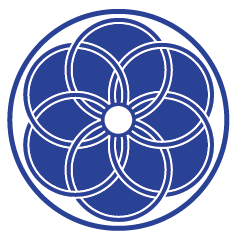wu chi - a guest post by Chantal Fafard
Going through some of my old notes today I found this piece written by my friend and teacher from many years ago, Chantal Fafard. She was also a student of Sam Masich and has since moved on to other pursuits, but I remember her fondly. This is a great little piece on Tai Chi philosophy. See what you think…
Wu Chi
It is said that before you start your Tai Chi routine, you stand quietly in the state of Wu Chi. This state is usually represented as a still space – sometimes called the Void – and is filled with potential for creativity. As soon as you start your routine, you come out of the Wu Chi state, and move into “duality”. Each posture contains this duality, represented here by the qualities of Yin and Yang. All throughout your routine, you alternate continuously between these two poles: substantial/unsubstantial, forward/backward, offensive/defensive…
Practicing Tai Chi though, is not just about expressing one posture after the other. It is about connecting them to your center. Without that connection, you find yourself off balance and out of real power. In fact, the posture you are practicing doesn’t really matter. What matters is that you find that underlying link that not only connects the postures together but more importantly connects the outer to the inner…
These concepts make a lot of sense when applied to your routine. In the same way, they can be used as an analogy for life.
Think of the Wu Chi as an underlying universal force – common to all, and filled with potential for new creations. While meditating, we all tap into that space, and before incarnating, I suspect we were simply part of it. When we come out of the Wu Chi state to be born into this world, we enter a world of dualities. Our body reflects this duality – male/female, short/tall, strong/weak – and we quickly identify with it. Our mind perceives people as friend/enemy, and good/bad things happen to us as we go through the ups/downs of life… The more we identify with this duality, the more we usually lose touch with our real nature.
The trick then is not only to move from one event to the other but to connect these events to your real essence. Here again, without that connection, you find yourself off balance and out of real power. With the perspective that comes from knowing that we are ‘spirit’, you can enjoy and learn from life without getting lost into ‘duality’. In fact, whatever you are going through in your life does not really matter. What matters is that you remember to connect the outer to the inner, the form to the essence. This is the quality and the practice of Taiji.
